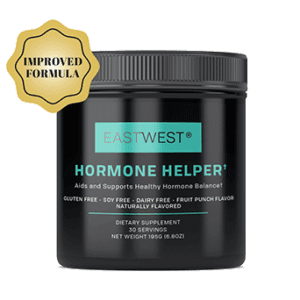PCOS affects around 5 million women in America alone – with many more living without a diagnosis. Many symptoms of PCOS mimic or can be associated with other illnesses, while others fall victim to medical gaslighting and are told that what they are experiencing isn’t cause for concern. This increasingly common condition can often be made worse by a variety of influences we face as part of our day to day lives – and without guidance and support, PCOS can become a debilitating and disruptive illness.
There’s no cure for PCOS – but identifying and treating PCOS as early as possible can help women to live normally. With lifestyle changes (and medication where necessary), women with PCOS can lead healthy and happy lives and can even restore their fertility with the correct approach. Living well with PCOS begins with a diagnosis – so being able to identify and understand the signs is key so that you can get help for yourself or a loved one.
What is PCOS?
PCOS is short for Polycystic Ovary Syndrome – a condition which affects the reproductive hormones and ovaries. PCOS affects each woman slightly differently – but common symptoms include:
*Irregular or missing periods
*Heavy or painful periods
*Weight gain, particularly around the middle
*Acne
*Thinning hair and hair loss from the head
*Excessive body hair growth
Not all women who have PCOS will have cysts on their ovaries – so thorough testing is needed to obtain a concrete diagnosis.
 Why does PCOS occur?
Why does PCOS occur?
Specialists aren’t sure yet why PCOS occurs, or why it is becoming so prevalent. From an integrative health perspective though the triggers are quite clear – including the chronic stress, toxic chemicals and endocrine disrupting foods we’re exposed to on a daily basis. East West Way founder Dr Taz explains:
“It is the new epidemic – women of all ages with escalating rates of PCOS or polycystic ovarian syndrome – battling the confusing range of symptoms; alopecia, acne, weight gain and infertility- just to name a few.
Most of these patients often go misdiagnosed for a period of time, because they don’t fit the classical textbook picture that is taught in medical school; grossly overweight, balding and with acne. Most patients I meet, including myself, have a more subtle version of these extremes.
Don’t give up hope! With the help of a good physician and a few diet and lifestyle changes, you may be surprised by how little PCOS affects your day-to-day life.”
5 signs and symptoms of PCOS you don’t want to miss
These five more subtle signs of PCOS are often missed – but being aware of them is key in order to obtain a diagnosis for many women. Some women experience a range of different symptoms, others just a few – so take time to consider your own body and what’s normal for you.
*Cravings for carbs: Carb cravings (sugar cravings in particular) are a common characteristic of PCOS linked to blood sugar and insulin levels. As insulin resistance and disrupted hunger hormones are often an issue with PCOS, intense cravings for sugary or high carbohydrate foods can be common.
*Fatigue: Tired of feeling tired? Persistent fatigue is a lesser-known but fairly common symptom of PCOS. Fatigue is more than just feeling a little tired every now and again – it’s a constant feeling of exhaustion that doesn’t get better with sleep or rest.
 *Joint pain: Joint pain is a less common but widely experienced symptom of PCOS, likely caused by elevated inflammation in the body. If you’re finding your joints are swollen and/or painful on a regular basis, this could be an indicator of underlying PCOS.
*Joint pain: Joint pain is a less common but widely experienced symptom of PCOS, likely caused by elevated inflammation in the body. If you’re finding your joints are swollen and/or painful on a regular basis, this could be an indicator of underlying PCOS.
*Anxiety and depression: If you are struggling with anxiety or low mood more often, these could be signs of PCOS. Hormonal imbalances can affect the levels of ‘happiness hormones’ in the brain, causing mood swings, depression and heightened feelings of anxiety.
*High blood pressure: Women with PCOS often suffer from higher blood pressure, which may be linked to PCOS-related weight gain or obesity. Early research suggests that higher levels of androgens and lower amounts of estrogen in women with PCOS can influence blood pressure.
Concerned about PCOS?
The first step to take is to speak to your doctor to share your concerns and talk them through your symptoms. They should be able to run tests to determine if there’s any underlying hormone imbalance and can advise you on the best steps to take to help you feel better.
Need additional help with hormone balance? Try our Hormone Helper blend – a daily supplement carefully formulated using Eastern wisdom and Western medical science for powerful non-invasive endocrine support.






